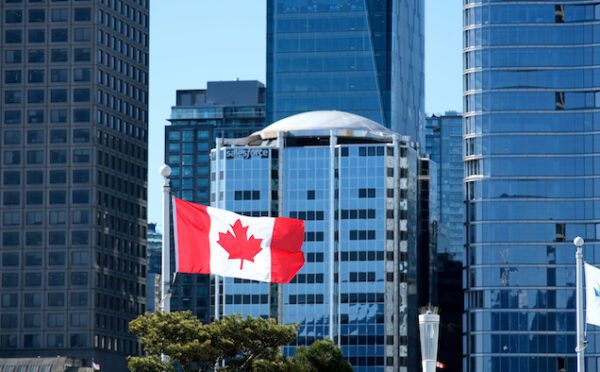During the 2017 and 2018 initial coin offering (ICO) boom, the concept of tokenizing real-world assets (RWAs) became popularized. Many innovators saw the potential to disintermediate traditional finance models and expand secondary market liquidity. In 2024, the dialogue on RWA tokenization has not only resurged but is now being brought to life through tangible implementations. Major financial institutions, including the likes of JPMorgan Chase, Citibank, UBS, HSBC, and BlackRock, as well as (relatively) new Canadian players such as Atlas One, Polymath, and Taurus have offered, or have announced their intention to offer tokenized RWA services and products. Organization are using these services to tokenize everything from stocks and bonds, to farmland, to precious metals. The European Investment Bank issued its third batch of tokenized bonds earlier this year and Broadridge, a U.S.-based fintech infrastructure company, now facilitates over $1 trillion in tokenized repurchase agreements monthly on its Distributed Ledger Repo platform.
Canadian issuers, platforms, and other entities involved in tokenized RWA offerings should consider ownership and transfer mechanisms; tokenization structures; securities law compliance and exemptions; anti-money laundering rules; privacy and data protection implications; and consumer protection regimes. These factors may inform a variety of considerations, including the structure of a token offering, the design or selection of a tokenization platform, and a suitable blockchain.
Tokenization
To tokenize is to represent an asset on a blockchain. A key benefit of tokenization is that it allows for the underlying RWA to be offered in new markets to a wider number of buyers and sellers. Crypto asset markets, with their global reach, enable transactions in RWAs between buyers and sellers who might otherwise find such dealings unattainable. By fractionalizing tokens, even price-sensitive buyers can affordably access RWAs that would typically be beyond their financial reach.
Tokens may be encoded with logic functions and joined with other automated processes so that they are easier to manage than, for example, securities based on paper or existing in databases owned by intermediaries. The programmability of tokens may reduce the probability of error and promote native rules that streamline compliance, accounting, and audit.
Financial transactions, especially those that cross borders, are often delayed as a result of the large number of intermediaries that are required, particularly in execution and settlement. However, the distributed and transparent nature of token-underpinned ledgers facilitates near-instant settlement at a reduced cost compared to traditional finance. Moreover, with fewer intermediaries, the risk of errors decreases, enhancing data reliability.
It is crucial to acknowledge that the act of tokenizing RWAs does not alter the intrinsic nature of the assets themselves. This fact underscores the importance of a thorough legal and regulatory analysis grounded in the characteristics of the underlying asset. Whether we consider ownership transfer mechanisms, the application of securities laws, or consumer protection measures, the essence of the RWA invariably guides these considerations. For instance, the process of transferring ownership of a tokenized asset must align with the legal framework governing the physical asset, ensuring that all transactions are both valid and enforceable. Similarly, the characterization of a tokenized asset under securities laws hinges on the nature of the underlying asset, which can have profound implications for compliance, regulatory oversight, and investor protection.
Legal hurdles
Ownership and transfers
Tokenization involves the creation and transfer of tokens that represent ownership in an underlying RWA. It is essential to establish a clear legal framework for the ownership and transfer of these tokens. This includes, for example, defining the rights and obligations of token holders, establishing mechanisms for transferring tokens, ensuring compliance with applicable property and contract laws, and creating processes to verify ownership where the token is lost or defunct. Carefully drafted legal agreements that reflect the nature and programming of the token smart contracts, are essential.
Tokenization structure
The process and challenges for tokenizing RWAs depends largely on the nature of the RWA. For example, since no Canadian provincial land title registry is yet connected to a blockchain, real estate must be tokenized via the creation of a special purpose entity, such as a corporation or partnership, which legally owns the asset. Ownership units — such as shares, if a corporation is used — each represent a fractional interest in the real property. The units can be tokenized and traded on crypto markets, as each onerepresents an interest in the underlying asset.
With an asset such as real estate, the choice of ownership vehicle will depend on a number of considerations, including the nature of the assets being tokenized. Corporations and partnerships carry with them different start-up and maintenance costs, tax consequences, ownership restrictions, and other statutory restrictions or requirements that might influence their suitability as an ownership entity. For instance, corporations created pursuant to the Business Corporations Act (Ontario) must prepare and maintain a register of individuals with “significant control” over the corporation. Complying with this rule requires continuous monitoring of token ownership; however, we have seen this accomplished even on public, permissionless blockchains.
Securities laws: more markets, more problems
In theory, tokenization allows RWAs to be sold in more markets with fewer restrictions, offering deeper and wider pools of liquidity. Crypto markets operate continuously on a 24/7 basis, and many can be accessed with nothing but an Internet connection. RWAs and securities can be broken down into infinite units and sold as fractional investments. Previously complex tasks, such as an anonymous investor in India purchasing a fractional interest in a real estate development in rural Ontario, are simplified via on-chain RWA tokenization.
However, these same benefits often result in securities law challenges. To the extent the token is a security or derivative, it is governed by securities laws. Persons distributing securities to Canadian residents, or to foreign residents from Canada, may be subject to the Canadian prospectus and registration requirements, unless they qualify for an exemption. These requirements may require persons to register with securities regulators in some capacity, prepare a prospectus or similar disclosure document, make ongoing disclosure to investors, and comply with reporting and compliance rules. If tokens are traded on secondary markets, additional securities law considerations come into play. Entities operating secondary trading platforms for tokens may need to register as securities exchanges or alternative trading systems, or they may be able to rely on exemptions available for such platforms. Securities regulators may also impose specific requirements on these platforms to protect investors and maintain fair and orderly markets. To the extent that persons outside Canada are offered tokens, further thought must be given to the securities laws of the relevant foreign jurisdictions.
In any tokenized RWA transaction, issuers of tokenized RWAs must be able to determine and verify the identity and location of each token purchaser for the purpose of assessing their obligations under the applicable securities laws. For this reason, designing a system that enables robust “know your client” (KYC) functionality, or choosing a third-party service that has an off-the-shelf KYC solution, is imperative.
Anti-money laundering laws
When tokenizing real-world assets in Canada, the Proceeds of Crime (Money Laundering) and Terrorist Financing Act and Quebec’s Money-Services Businesses Act (together, the AML laws) become relevant. AML laws are designed to prevent the use of financial systems for money laundering, terrorist financing, and other illicit activities.
People who provide virtual currency exchange services, which generally includes the exchange of crypto tokens for fiat or other crypto assets, are required to register as money services business (MSBs) under AML laws. MSBs are subject to a range of requirements, including conducting KYCs, implementing comprehensive and effective compliance programs, and reporting certain transactions to the applicable regulator. Both the issuer and the service provider should understand their obligations under AML laws.
Privacy and consumer protection laws
Tokenization involves the use and collection of personal data, such as investor information and transactions details. Compliance with privacy and data protection laws is essential to safeguard the privacy rights of individuals and protect against data breaches. Implementing appropriate data protection measures, obtaining necessary consents, and ensuring secure storage and transmission of data are crucial aspects of tokenization.
Provinces and territories in Canada have their own consumer protection legislation that provide additional rights and protections to consumers. These laws typically cover various aspects of consumer transactions, including unfair practices, contract terms, and dispute-resolution mechanisms. They may apply to tokenized RWA offerings and transactions to ensure that consumers are treated fairly and have access to specified remedies in case of disputes.
Choosing a blockchain
Issuers contemplating an RWA tokenization project should carefully consider their legal needs prior to choosing their underlying blockchain. Not all blockchains are created equal.
Blockchains have varying smart contract functionality. When evaluating potential blockchains, issuers should consider the limitations and capabilities of their smart contract platform. An assessment should be made about whether the smart contracts can accommodate the legal requirements of the tokenization project, including ownership rights, transfer mechanisms and restrictions, and privacy and data protection. The smart contracts should be legally enforceable and align with the laws of the applicable jurisdictions.
Some issuers of tokenized RWAs choose to use permissionless blockchain solutions, but arrange for registered securities dealers such as exempt market dealers to sell the assets pursuant to prospectus exemptions. This can be effective as it off-loads certain legal responsibilities onto a service provider and promotes compliance with securities and AML laws.
The best blockchain for any issuer of an RWA token will ultimately depend on the issuer’s business and the applicable compliance requirements, in addition to its liquidity, market, and technology preferences.
Conclusion
Tokenization of real-world assets presents exciting opportunities for increased liquidity and fractional ownership. However, it is essential to navigate the legal considerations involved in this process. Regulatory compliance, ownership and transfer of tokens, investor protection, and privacy, consumer, and data protection are some of the key legal considerations that must be carefully addressed. Engaging legal professionals with expertise in both law and blockchain technology can help ensure a legally sound and compliant tokenization process.


